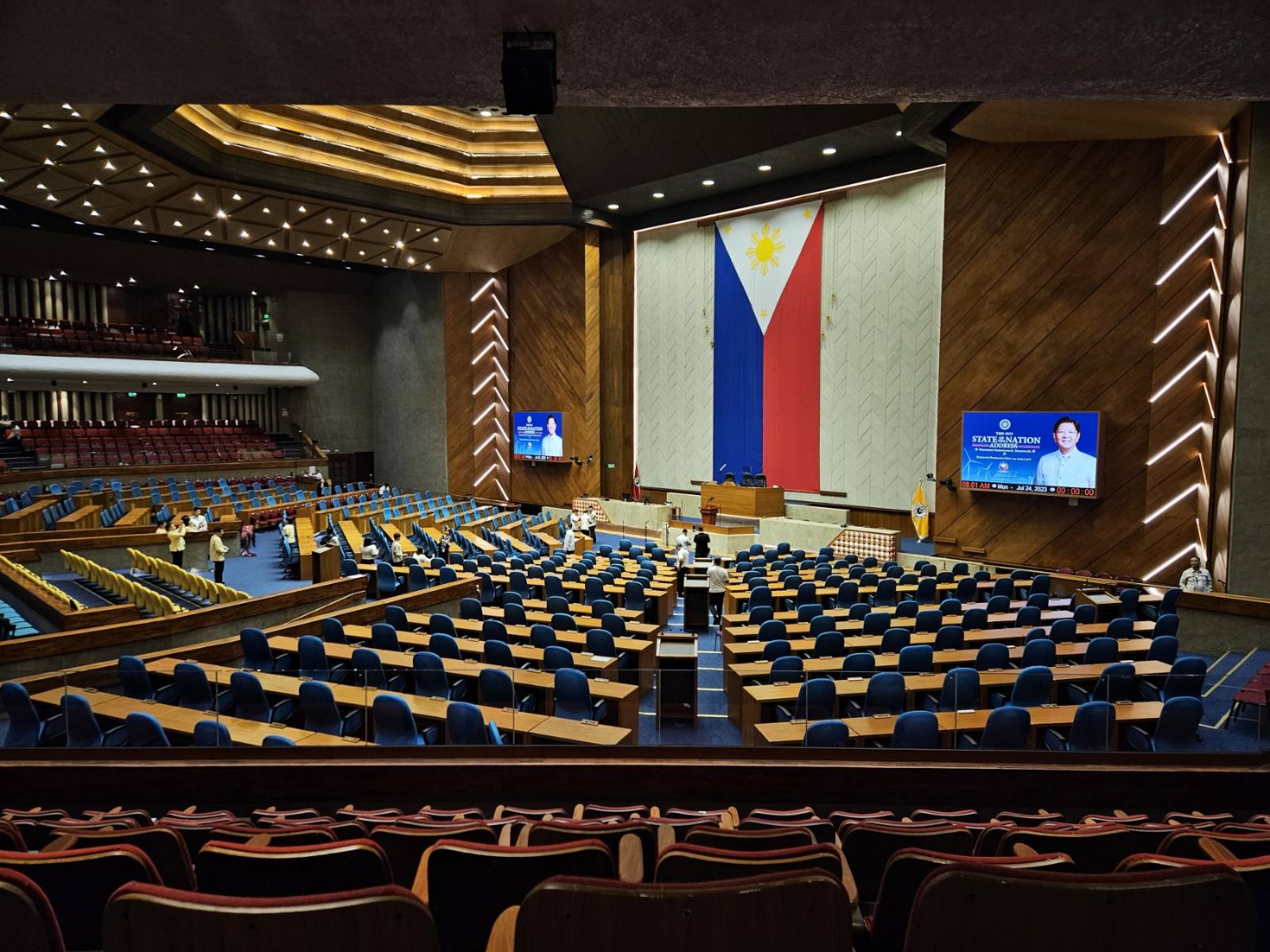House Committee of the Whole OKs RBH 7; 3rd reading eyed before Holy Week break
At A Glance
- The Committee of the Whole in the House of Representatives approved its pro-Charter change (Cha-cha) measure, Resolution of Both Houses (RBH) No.7, on Wednesday afternoon, March 6, after roughly six days of plenary discussions.
 The House plenary hall
The House plenary hall
The Committee of the Whole in the House of Representatives approved its pro-Charter change (Cha-cha) measure, Resolution of Both Houses (RBH) No.7, on Wednesday afternoon, March 6, after roughly six days of plenary discussions.
Committee of the Whole Majority Leader Mandaluyong City lone district Rep. Neptali "Boyet" Gonzales II moved for the approval of RBH No.7 at around 2:30 p.m., just minutes after terminating the period of interpellations by the House members.
Zamboanga City 2nd district Rep. Mannix Dalipe, the vice chairman and president officer in plenary, carried Gonzales' motion after nobody objected.
The 300-member House comprised the Committee of the Whole, which held interpellations or debates on the measure on Feb. 26 to 28, and on March 4 to 5.
Later that afternoon, during their regular plenary session, the solons approved the unnumbered committee report on RBH 7 via voice vote (ayes vs. nayes).
Gonzales, in a press conference Wednesday morning, projected the second reading passage of the pro-Cha-cha measure next week possibly next Wednesday, March 13.
“Based on the timeline shared with me, [March] 11, 12, 13 will be the second reading…I guess maa-approve ito (I guess this will be approved) on second reading by Wednesday next week,” he said.
These planned actions set up the measure's passage on third and final reading on the final session week this month, from March 18 to 20. The House will then go on Holy Week break afterward.
The House's RBH No.7 was lifted from the Senate's own RBH No.6. Both seek revisions to the economic provisions of the 1987 Constitution as a way to attract more foreign direct investments (FDIs) to the Philippines.
These provisions are the articles governing public utilities, education, and advertising. RBH No.7 proposes to insert the phrase “unless otherwise provided by law" in these individual articles of the Charter.
As explained by proponents during the deliberations, the phrase will serve as a catch-all provision that would allow Congress to pass laws and make these articles tailor-made for the times.
The just-concluded plenary discussions centered on reassessing the 60-40 equity rule on foreign ownership, which currently restricts foreigners to owning up to 40 percent of companies in the Philippines.
This rule has long been identified as a significant barrier to substantial increases in FDIs and has hindered the country's economic growth trajectory.
Over in the Senate, RBH No.6 is still undergoing discussions in the subcommittee level.